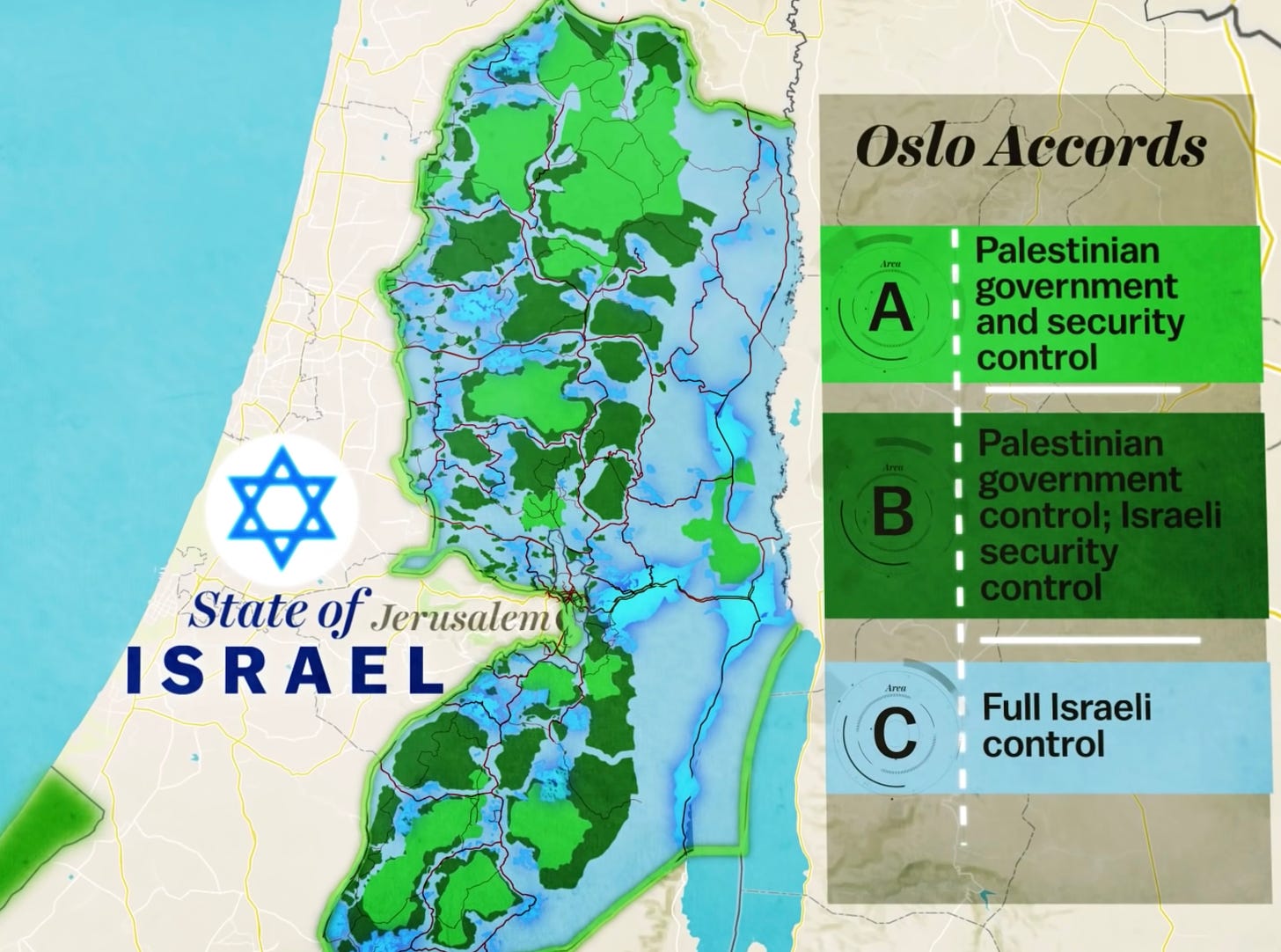Israel Fostered the Rise of Hamas, Even After It Turned to Terror
Deliberately undermining the peace process by eliminating acceptable counterparties

All Global Research articles can be read in 51 languages by activating the Translate Website button below the author’s name.
To receive Global Research’s Daily Newsletter (selected articles), click here.
Click the share button above to email/forward this article to your friends and colleagues. Follow us on Instagram and Twitter and subscribe to our Telegram Channel. Feel free to repost and share widely Global Research articles.
***
In the aftermath of Saturday’s terrorist and military attacks on Israel by the Palestinian group Hamas, Prime Minister Benjamin Netanyahu declared,
“The forces of civilization must support Israel in defeating Hamas…In fighting Hamas, Israel is not only fighting for its own people, it is fighting for every country that stands against barbarism.”
Those sentiments are quite different from ones Netanyahu privately shared in 2019.
“Anyone who wants to thwart the establishment of a Palestinian state has to support bolstering Hamas and transferring money to Hamas,” Netanyahu told Likud Party legislators.
Doing so would help prevent the West Bank-based Palestinian Authority (PA) from ruling Gaza and giving Palestinians a relatively moderate, unified voice at the negotiating table.
“This is part of our strategy — to isolate the Palestinians in Gaza from the Palestinians in the West Bank.”
Israel’s reckless exploitation of Hamas is as old as the group itself. Indeed, decades before Netanyahu’s closed-door candor, the Israeli government pushed Hamas into its initial prominence, with direct and indirect financial support.
Throughout the 1970s, Israel’s nemesis was the Palestine Liberation Organization (PLO). In stark contrast to Hamas — which emerged from the Muslim Brotherhood — the PLO was a secular, leftist organization, led by Yasser Arafat, who headed the PLO’s Fatah faction.
As a former senior CIA official told UPI’s Richard Sale in 2001, Israel’s initial boosting of Hamas “was a direct attempt to divide and dilute support for a strong, secular PLO by using a competing religious alternative.”
Islamist groups began rising in prominence in Gaza in the wake of the 1967 War, as they undertook educational, cultural, social and infrastructure initiatives to make life better for Palestinian refugees there.
When it first registered with Israeli authorities in 1978, Hamas was led by Sheikh Ahmed Yassin, a half-blind, wheelchair-bound Muslim cleric who launched schools and clinics throughout Gaza. Israel backed his efforts, and also approved the founding of the Islamic University of Gaza…which would go on to become an extremist hub deemed worthy of Israeli bombs.
Israeli Brigadier General Yitzhak Segev, who was governor of Gaza and in frequent touch with Yassin, told the Wall Street Journal that he fully grasped Yassin’s ultimate aims — to replace Israel with an Islamic state — and the dangers of the Hamas ideology. However, at the time, Israel prioritized undermining the PLO-leading Fatah.
In the wake of Iran’s 1979 revolution that saw a secular, US-backed regime replaced with an Islamic republic, Hamas and other Islamists grew more popular, ambitious — and violent.
Regardless, Israel’s financial backing continued, a US intelligence source told UPI, saying the support now had an additional rationale — to gain intelligence and identify the most dangerous of Hamas members.
However, another US government official highlighted a far more sinister Israeli aim: to obliterate the chance for progress in resolving the Israel-Palestinian conflict. “The thinking on the part of some of the right-wing Israeli establishment was that Hamas and the other groups, if they gained control, would refuse to have anything to do with the peace process and would torpedo any agreements put in place,” the official said.
That would enable Israel to continue paying lip service to a two-state solution while disingenuously bemoaning its lack of a “partner for peace” on the Palestinian side. In the mean time, Israel would continue changing “facts on the ground” by demolishing Palestinian homes, authorizing more West Bank Israeli settlements and precluding the creation of a contiguous Palestinian state in the Israeli-occupied territory.

Settlements throughout the West Bank have eliminated any real chance for a contiguous Palestinian state (via Vox)
In 2015, Bazalel Smotrich, leader of the Religious Zionist Party and now Israel’s finance minister in 2015 said,
“On the international playing field, in this game of the delegitimization…the PA is a liability and Hamas is an asset. It’s a terrorist organization. Nobody will recognize it, nobody will give it status at the [International Criminal Court] and nobody will let them push resolutions at the UN.”
“In the eyes of the Israeli right, the real threat to Israel is not Hamas’ violence and terrorism — the danger is a peace agreement…and the establishment of a Palestinian state,” wrote Meron Rapoport at Tel Aviv-based +972 Magazine.
Hamas isn’t the only extremist group the Israeli right has a soft spot for. Under an earlier Netanyahu government, Israel gave medical assistance to wounded al-Qaeda members and sent them back to fight the secular, Iran-aligned government in Syria…where they’d inevitably abduct, torture and murder civilians too. Former Mossad chief Efraim Halevy said Israel’s aid was acceptable because “Al Qaeda, to the best of my recollection, has not attacked Israel.”
In a deposition for one of the corruption cases against him, Netanyahu — referring to Hamas and Lebanon-based Hezbollah — said,
“We have neighbors who are bitter enemies…It’s impossible to reach an agreement with them…Everyone knows this, but we control the height of the flames.”
That statement does more than showcase Netanyahu’s legendary arrogance. In light of reports that Egypt’s intelligence minister directly warned Netanyahu to prepare for a surprise Hamas assault — “something big” — it also underscores the possibility that Netanyahu was content to allow an attack of unknown dimensions to unfold, with hopes that “flames” of a tolerable height would be useful to his extremist government’s agenda.
*
Note to readers: Please click the share button above. Follow us on Instagram and Twitter and subscribe to our Telegram Channel. Feel free to repost and share widely Global Research articles.
Featured image: Members of the Hamas al-Qassam Brigade at an event marking the anniversary of Israel’s 2014 war on Gaza (EPA-EFE/Mohammed Saber via Euractiv)

